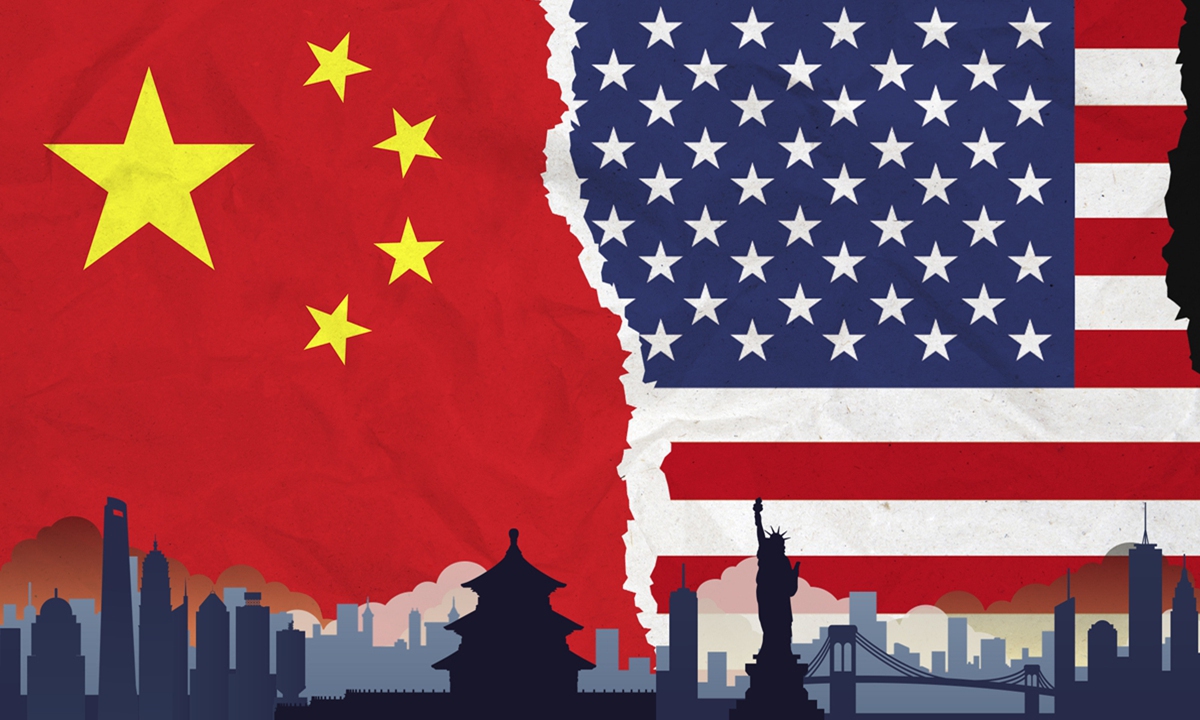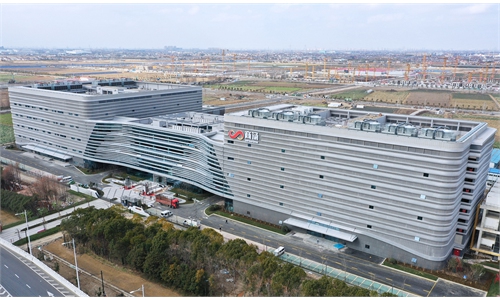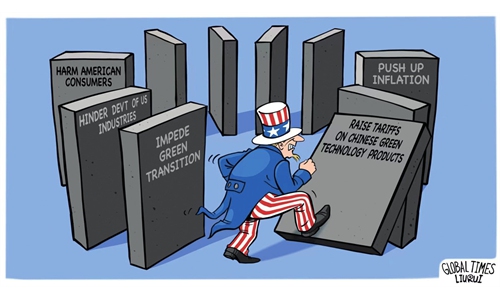
China-US Graphic: GT
The recent news that Microsoft is considering relocating its China-based AI team internationally quickly became the focal point of public discourse in China. Whether this is a trial balloon or a preemptive warning, the ripples it has caused hint at a deeper narrative, signaling a structural shift in the US-China high-tech tango under the broader backdrop of decoupling from China.
From the perspective of Chinese public attention, this move is more widely seen as "the opening salvo in a larger conflict," indicating that the US' decoupling and chain-breaking attempt in the talent domain will continue to expand, with the battle for talent becoming increasingly fierce.
Sooner or later, it will extend to American international companies, including those operating in China, which have accumulated many high-tech talents over the years.
American scholars Graham Allison and Eric Schmidt said in an article they wrote together, that "the US needs a Million Talents Program to retain its technology leadership," especially in the face of fierce competition from China.
On one hand, the US will tighten its control over domestic research and academic institutions regarding Chinese scholars while leveraging its global advantage to attract talent. On the other hand, China faces the challenge of retaining its existing talent to prevent excessive or rapid loss while also expanding its talent pool, including attracting more international experts.
Foreign enterprises have nurtured a great deal of talents for China. However, in recent years, global competition between US and Chinese companies has been intense. Chinese companies mainly rely on domestic talent, whereas top-tier US companies draw from a worldwide talent pool. Companies like Huawei in China also strive to attract more global talent, but they need help to overcome obstacles created by the US.
Chinese companies face two challenges: relying on domestic talent to meet their development needs, and better utilizing international talent. A key indicator of whether Chinese companies can stand firm globally is their ability to become the most attractive employers for global talent, on par with US companies.
Another aspect of this competition is how technological developments in the US and China will create more opportunities for future talent. The US currently leads in fundamental AI research and original algorithms, while China's original research still needs improvement.
However, China has its own advantages. According to statistics from the World Intellectual Property Organization, China has been steadily narrowing the gap with the US in patent applications, particularly in the field of AI. China can capitalize on its strengths in manufacturing and AI applications, utilizing its vast market and big data to foster talent development. It should also strive to create a conducive environment for talent growth, ensuring that its workforce is a source of knowledge and a driver of innovation.
Facing the US' technological blockade and talent flow restrictions, China needs to intensify its efforts to nurture domestic talent and implement policies to attract overseas talent, especially Chinese scientists and engineers living abroad.
As the 21st century unfolds, the race to attract the best and brightest minds will be a critical battleground between the US and China. This competition will shape the economic and technological futures of these two giants and lay the foundation for global innovation and progress. The world is closely watching as the outcome of this talent war will transcend US-China boundaries, profoundly affecting the structure of global talent flow and technological advancement.
The signal from Chinese public attention to Microsoft's personnel movement is that a significant reshuffling of talent has already begun.


